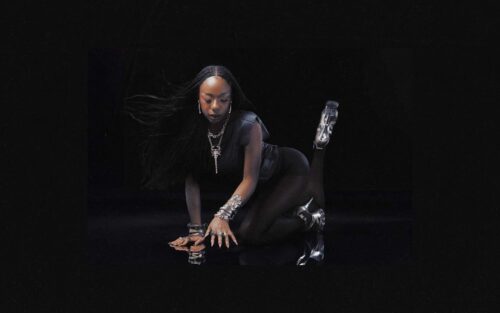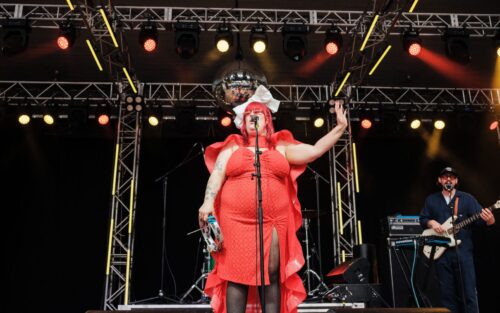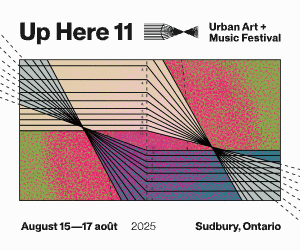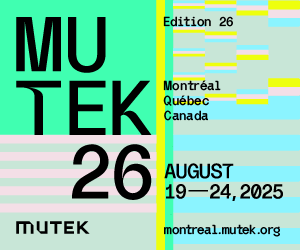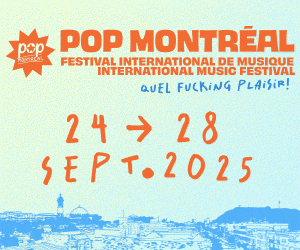Mother Mother On Plant Apps and Finding Solace In Mother Nature
Frontman Ryan Guldemond opens up the intoxicating paradox of his West Coast surroundings.
By Isaac Page
- Published on
“It was particularly nice outside when this ominous, grave event struck us,” Guldemond recalls, thinking back to the beginning of the pandemic. “I was intoxicated by that paradox; how beautiful it was, yet so grim at the same time.”
The mild spring weather in Vancouver prompted Guldemond to spend more time on walks through the city, particularly his old neighbourhood and the Downtown Eastside. “My old neighbourhood is quite lush, and I fell in love with taking photos of flowers during the early days of the pandemic. I had a plant app where I could take it in, learn the latin root name, and forget it promptly,” Guldemond says with a laugh.
Contrasting his experiences with nature, Guldemond says that hanging out in the Downtown Eastside amid the pandemic felt “very dystopian.” “The environment [in Vancouver] really did possess both polarities, extremely so. It really is a dichotomous place. There’s a lot of beauty, but there’s a lot of things broken with the system. There’s a lot of homeless people and a drug epidemic, and it felt like all of that was magnifying because of the pandemic; because there weren’t enough resources and attention given to the more vulnerable.”
The duality of Vancouver, with its pockets of lush nature and areas of extreme poverty, informed Guldemond’s writing and the sound of Mother Mother’s new album. As Guldemond explained, Inside is “about hope and optimism, but born from the trenches and the dark side of things.”
It wasn’t just the overall direction of the album that was influenced by his surroundings but also the sonic landscape as a whole. As Guldemond wrote the songs and recorded demos for the album, he would take soundbites from his walk, “interactions with people on the street, birds, or the drone of the city,” and add them to the demos, some eventually making their way to the final mix.
The effects of the pandemic were further felt during the recording process of the album. Restrictions around gatherings prevented the band from recording at the same time. “We never actually were in one room, playing the songs together at once during the whole making of the record. The drummer would come in, masked, play the drums, then leave, and then the bass player would come in. It was fairly separate in that way. But you know, we know each other well enough. We all haunt each other’s dreams, we’ve spent that much time together,” Guldemond laughs.


With all the unexpected events of the last year, there was at least one positive surprise for the band in TikTok. Mother Mother songs, especially from their early albums, started to go viral on the platform.“It was shocking,” Guldemond says. “Our other platforms — YouTube, Spotify — were starting to show signs of growth, and it didn’t make sense because we weren’t promoting new music; we were in an off-cycle, and with some investigation we traced it back to TikTok, which was something people had heard about, but we didn’t understand or have a connection to.”
After digging into the app to investigate, Guldemond was shocked by what he found. Thousands of videos using the band’s older songs, primarily made by very young, new fans. “It almost felt like I was looking in on a Twilight Zone alternate reality. It didn’t feel like I was looking in at something that I was a part of. What a gift! What a life-changing circumstance.”
Like so much else that’s happened this year, there was yet again a dualism to the excitement of reaching this new audience on TikTok. A simple question: would it last? Guldemond says yes. “I kinda got the impression that by the spirit of these videos, and the passion with which people were reenacting the lyrics, dressed in cosplay, felt real. If we meet it with our whole heart, authentically, and put out music, work hard to promote that music, and keep that formula healthy, honest, and well intended, then maybe this means we can nurture this relationship for years to come. We certainly don’t take it for granted and want to meet it with reciprocity. It’s a whole new lease on being in a band after 15 years.”
There’s more than just a feeling that this new growth is here to stay; Mother Mother’s upcoming world tour has already begun to sell out, thanks in large part to this new audience of younger fans. And with a tour on the horizon and the imminent return of live shows, thoughts of normalcy begin to fill our heads. A new kind of normal where we appreciate the things we once took for granted.
Thinking about the things he missed about touring, Guldemond says, “Sometimes you find yourself missing the slog. You miss having that clear schedule of doing various arduous tasks, all for the purpose of erecting this show at the end of the night and having this cosmic, transcendental experience. There’s a beauty in how these things relate: you do this grind for a day that feels kinda mundane so that you can perform this magic trick. You think that you only miss the magic, but with enough distance you realize that you miss the whole thing because they’re connected and they need each other in order to survive.”
Mother Mother’s new album, INSIDE, will be available on June 25.
By Ben Boddez
The Toronto genre-bender speaks on shining brightly while not flying too close to the sun.
By Sebastian Buzzalino
Calgary’s beloved summer festival trudges through the downpour with a stacked lineup of genre-bending greatness.


